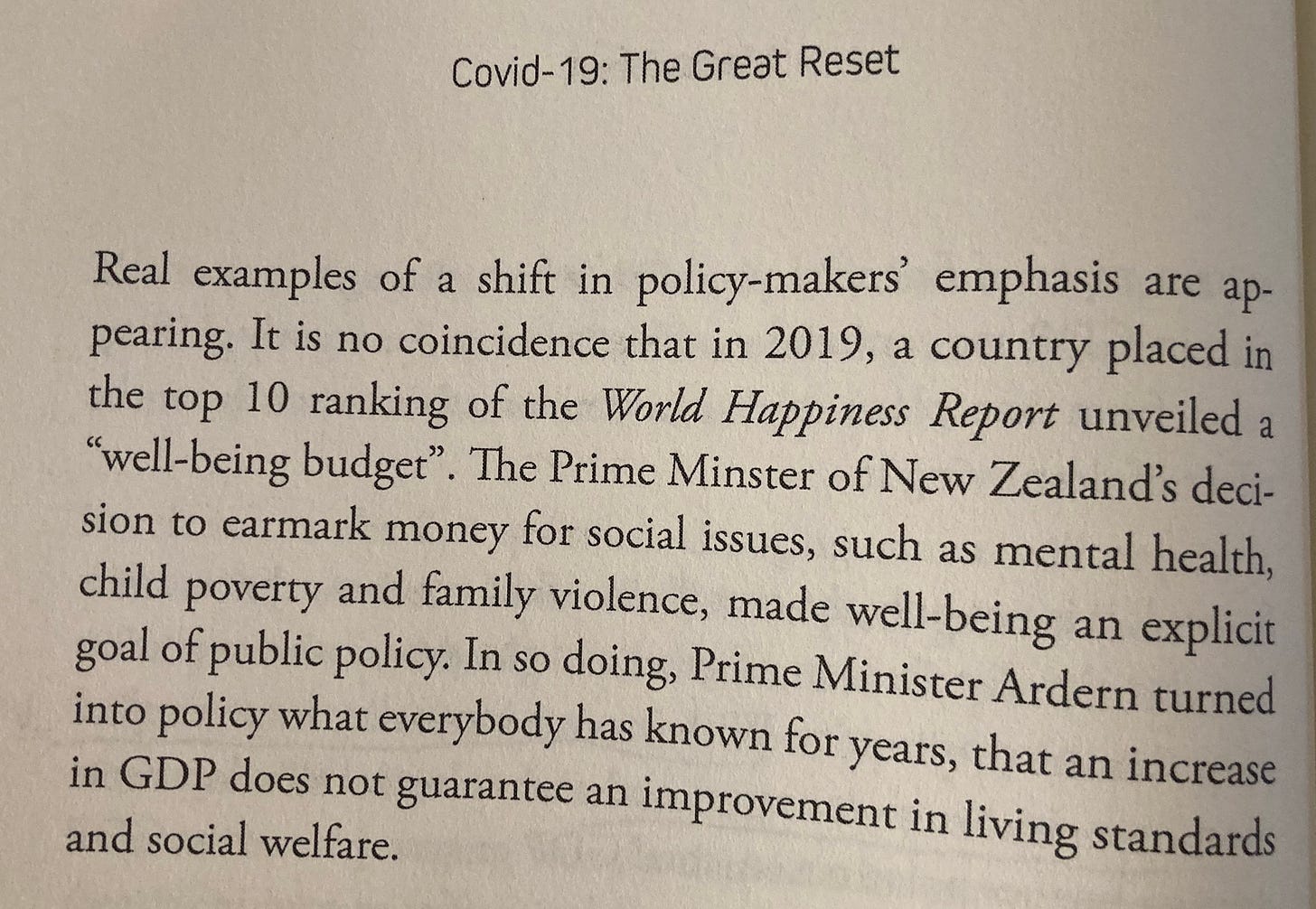Seeing roughly 4,000 references a day to Klaus Schwab and the World Economic Forum, it occurred to me late last week that I’d never gone to the source — I’ve never read a book by Klaus Schwab. So I set out to read the one the Dutch parliamentarian asked his prime minister about, the one about the Great Reset, which Schwab co-wrote with Thierry Malleret. It’s a little like saying, “Man, you know, I’ve never gone swimming in the sewer,” and then pulling on your swimsuit.
So.
First, if you weigh about ten pounds, I can report that the book is the perfect size and shape for lounging.
This is the only value the book provides to the world, and I recommend the immediate deployment of all remaining copies to the one population that can actually use them. Personal to Klaus Schwab: Give the next book a scratchy cardboard cover. Just trust me on this.
As for the book’s relationship to humans: Klaus Schwab, it turns out, is Supervillain Thomas Friedman. Being shrewd, he notices things: Did you know that a lot more people are online now than twenty years ago? Did you know that many objects are now connected to the Internet, from “electric grids and water pumps, to kitchen ovens and agricultural irrigation systems,” and that objects didn’t used to be connected to the Internet? Did you realize that this shift is causing change? When we talk about the pace of change, reader, we are talking about a term called velocity, and a lot of change happening quickly has a high velocity.
If you’ve ever worked for a corporate middle manager who held meetings to encourage the team to think outside the box, you’ve already read Klaus Schwab. We get an endless stream of tautological management-speak, encouraging leaders to embrace transformation by adopting a transformational approach, leading to transformational action and transformational policy caused by a transformational something or other. Page 63: “Innovation in production, distribution, and business models can generate efficiency gains and new or better products that create higher value added, leading to new jobs and economic prosperity.” Innovation can create things that are new, he explained, showing why he’s one of our best-known and most powerful economic experts. A warning to the world: If Kamala Harris and Klaus Schwab ever end up alone in a room together for a sustained and direct conversation, the banality will attain critical mass, and we will all die in a world-consuming implosion.

And here’s the key to the man’s power and status: He sounds like them. He talks to the governing class in language they recognize, telling them the things they already think. He went to a place where people already were, and he told them he led them there. Here’s a picture of the top of page 60, which I wrestled a cat to get:
1.) The governing class spends more OPM on more social welfare programs. 2.) Klaus Schwab explains “what everybody has known for years,” revealing that it’s very good to spend more money to have more government programs. 3.) The governing class recognizes Klaus Schwab as a very important expert.
This point cannot be exaggerated: The function of Klausschwabian Wisdom™ is to run up to the front of the ongoing parade and pretend to be the drum major. The historian Christopher Lasch famously wrote about the twentieth-century displacement of family functions by the emerging “helping professions.” (“…society in the guise of a ‘nurturing mother’ invaded the family…”) Then Schwab waddled into the twenty-first century and innovatively discovered that, hey, what if we transformed the economy by paying people to do, I don’t know, professions centered on helping. Page 62: “Investment in childcare, care for the elderly and other elements of the care economy would create 13 million jobs in the US alone and 21 million jobs in seven economies, and would lead to a 2% rise in GDP growth in the countries studied.” Klaus Schwab’s bold innovation for the global economy is that he thinks he invented babysitting. And the phrase “care economy” so obviously hides a bunch of social debilitation and personal ruin behind a smiley face that it nearly causes actual, physical gagging: serfdom as liberation. Wipe my tushy for a living, empowered peasant.
Finally — not because it’s my last thought on the book, but because it’s the last thought you or I currently have the patience for — look at this remarkably innovative reconceptualization of the relationship between corporations and the state:
A German economist, born in 1938, proposes that markets would work better if they were coordinated by the state. Hmm. Tell me more about those mine shafts, Dr. Strangelove.
Career advice for young adults: Mindlessly repeat things that powerful people seem to already think, and you’ll soon be respected on the global stage as an exceptionally gifted expert.







Klausschwabian: Substack word of the day!
Is he Darth Vader, Wayne Newton or Colonel Klink?
Why do this rich globalist ass-holes want to tell everyone else what to do aka govern? Why don’t they just buy an island somewhere, drink martinis all day and leave the the folks who actually do stuff the hell alone?